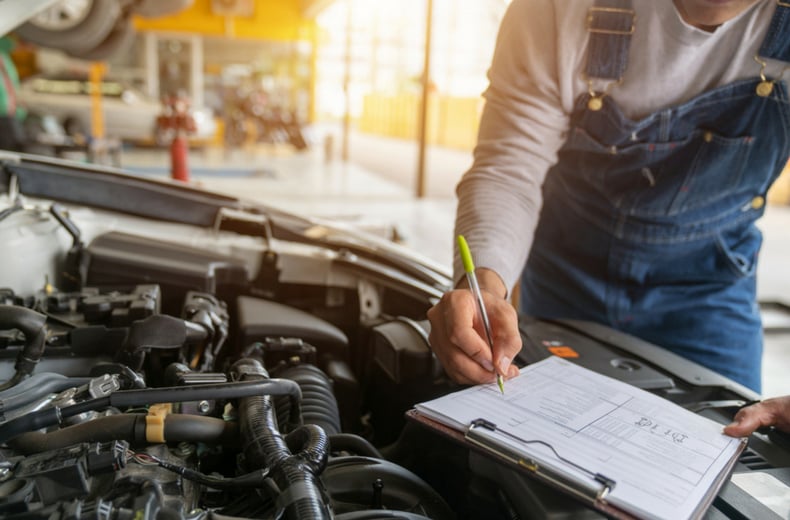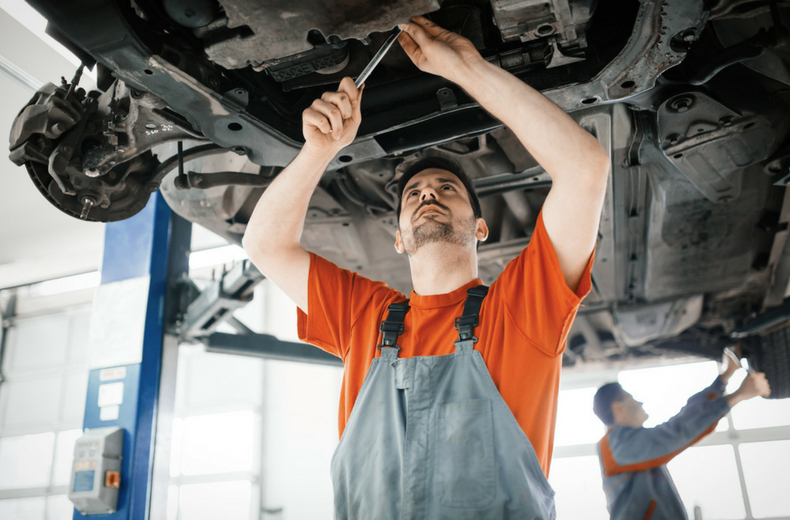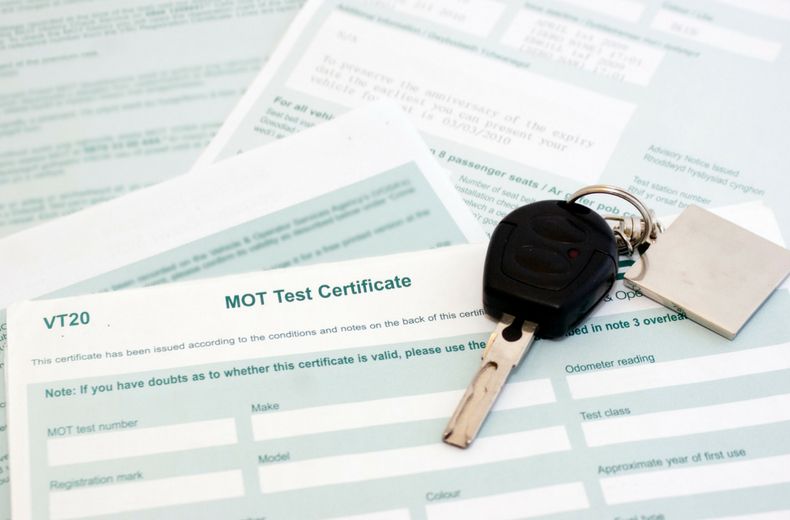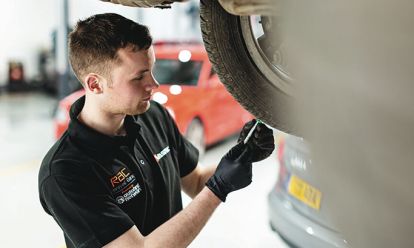Sometimes your car might pass its MOT but with an advisory note attached, highlighting issues that will need addressing in the near future.
Here we talk you through some of the more surprising issues you can still pass your MOT with.
Find out when your MOT is due with our free MOT checker. Simply enter your vehicle's registration to check its MOT expiry date and view its test history.
1. Cracked windscreen
While the MOT will check your vehicle’s windscreen for chips or cracks, you can get away with a small amount of damage.
Chips or cracks less than 10mm in the driver’s line of vision won’t cause your vehicle to fail.
Nor will any crack less than 40mm elsewhere in the remaining area cleaned by the windscreen wipers.
That said, it’s always worth getting cracks repaired no matter how small they are as they might develop into something more serious later.
2. Worn brake pads
Brake pads wear out over time due to use. When the lining starts to erode, it will affect braking efficiency and can be dangerous.
But unless the brake pads are worn below the minimum acceptable level of 1.5mm, you won’t actually get a fail.
If they’re approaching the limit but haven’t dropped below it, it’s more likely you will get an advisory warning that they’ll need replacing sooner rather than later.
Most mechanics still recommend replacing brake pads if the pad friction material has worn down to a thickness of 3mm. Why not have a look at our RAC Approved Garages or RAC Mobile Mechanics if you do need a repair?
The average lifespan of a set of brake pads is around 50,000 miles, but it can depend on where you drive, how hard you tend to brake and how many passengers you normally have.
3. Worn tyres
Car tyres must provide enough grip for drivers to be able to control their vehicle effectively.
That’s why there’s at tread depth legal minimum of 1.6mm. If your car’s tyres are above this limit, they’ll pass the MOT, even if they’re fairly well worn.
While they might be passable in the eyes of the law, it’s advisable to replace your tyres before they reach the legal limit.
Ideally, they should be replaced at 3mm as a tyre’s braking performance significantly drops below this point.
Sufficient tread depth is vital for good grip on wet roads as the tread pattern helps to wick away water from between the tyre and the road surface to stop you skidding.
- MOT checklist and comprehensive guide
- How to deal with a damaged windscreen
- The most common MOT fails and how to avoid them
4. Hole in the exhaust

Exhausts will only fail an MOT if there’s a major leak, or emissions are deemed unsafe.
A minor leak or corrosion would be pointed out on an advisory note as a possible future problem, but it would pass at the time of the test.
So long as there is no major leak of exhaust gases, or a part of the catalytic converter or diesel particulate filter is missing, your car should get through the test.
If there is a hole in the exhaust, you’ll need to work under the assumption that it will need a new one fitted soon.
5. Coolant leak
You might be surprised to learn that leaks of fluids such as engine coolant and screen wash aren’t considered reasons for failure.
According to DVSA guidelines, a vehicle will only fail the MOT if a fluid leak creates a pool on the floor within five minutes that’s more than 75mm in diameter, or if there are many leaks which collectively leak fluid at the same rate.
6. Dented wing or bumper

Although bodywork is checked during the MOT test, it only matters if there’s excessive corrosion, sharp edges or damage to specific areas of the vehicle.
So long as the door opens and closes properly, a dent in the wing won’t cause your car to fail.
Front doors should be able to open from both the inside and out, while rear doors will need to be opened to gain access to the rear seatbelts, which are also tested in the MOT.
A dented bumper will also pass the test, provided it’s not deemed dangerous.
7. Rumbling noise coming from the gearbox
You might be forgiven for thinking that any strange noises coming from your car would automatically fail your MOT.
But the test doesn’t actually cover the condition of the gearbox, clutch or engine (apart from emissions), so a growling sound in the gearbox wouldn’t affect it.
While technically-speaking it will get you through your MOT, an unusual sound should always be investigated further by a professional mechanic.
A car should be running smoothly without rumbling sounds, which could indicate there’s a serious transmission problem.
READ MORE: Clutch repair

SALE – up to 40% off*
Roadside & Recovery from £5.29 a month*
• Cheaper than AA Price Promise or we’ll beat by 20%^
• We get to most breakdowns in 60 mins or less
• Our patrols fix 4/5 breakdowns on the spot












